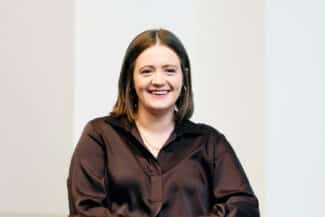New ruling on the subsistence of copyright in characters
Shazam v Only Fools The Dining Experience and Others [2022] EWHC 1379 (IPEC)
15.06.2022
The case concerned a claim by the owners (‘Shazam’) of the IP rights relating to the long-running TV show Only Fools and Horses (‘OFAH’) against the creators of the “Only Fools The (cushty) Dining Experience” which launched in 2018 and involved actors playing characters from the show interacting with customers while they ate. Shazam was set up by the descendants of John Sullivan, who created the characters and wrote the scripts for OFAH.
Subsistence of copyright in the Del Boy character
Shazam claimed that, alongside the copyright in the scripts and opening theme song from the show, copyright also subsisted in the OFAH character ‘Del Boy’. As the Judge explained: “There is surprisingly little discussion in English case law or commentary on whether (and if so in what circumstance) copyright might subsist in a character from a dramatic or literary work”. As such, the Judge applied the ‘two-stage test’ laid down by the Court of Justice of the EU in its Cofemel judgment, asking firstly, whether the character was the original subject matter and, secondly, that the character must be identifiable with sufficient precision and objectivity.
On the first point, the Judge held that the character Del Boy was an original creation by John Sullivan as it was a “fully rounded character” that was not a “stock character or cliché”. The judgment sets out key parts of Del Boy’s character, including his key phrases such as “lovely jubbly”, his use of mangled French, his relationship with his younger brother, Rodney, and his dodgy dealings. The Judge explained that, while each characteristic in isolation may not be distinctive, it was the particular combination of those parts that made the character of Del Boy distinctive. On the second limb, the Judge concluded that the features of Del Boy that made up his character were “precisely and objectively discernible in the Scripts” through the dialogue and character descriptions written by John Sullivan. Having found subsistence of copyright under the EU law test, the Judge confirmed that the character would be covered by the concept of a literary work in the closed list of protected English works without any strained interpretation of the Copyright, Designs and Patents Act 1988.
Parody and pastiche
Notably, the defendants attempted to rely on the exceptions to copyright infringement of parody and pastiche. The Judge confirmed that to qualify as a parody the work must evoke an existing work, be noticeably different from that existing work, and constitute an expression of humour or mockery. The need for an expression of opinion was said to be particularly important for parodies of comedies, which were themselves rare, as the “mere imitation (of a work of comedy) is not enough to constitute a parody”. In the case of the dining experience, the humour of the dining experience came from the borrowed material and the purpose of the performance was not to mock OFAH, therefore it was not a parody for the purpose of the defence.
The exception of pastiche is defined as a work that either imitates the style of another work or is a medley of a number of pre-existing works. In both cases, the work must be noticeably different from the original work. As the aim of the dining experience was to recreate the characters and backstory of OFAH, not to imitate the style of the show, the dining experience was not a pastiche and was ruled to be closer to an adaption of OFAH instead. In any event, the Judge held that there had not been fair dealing by the defendant (a requirement for both exceptions to apply), in particular, because Shazam would legitimately expect to be able to control the use of their rights in the OFAH script and characters.
We expect to see more cases in the coming year which continue to try to fit different creative works into the UK’s closed list of copyright works while at the same time apply the EU copyright law concepts which do not recognise different categories of work.

Simon Clark
Author

Maria Ryan
Author
